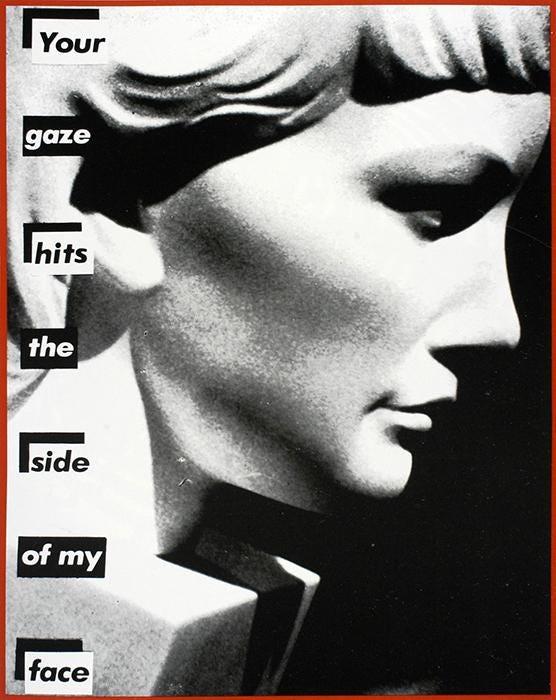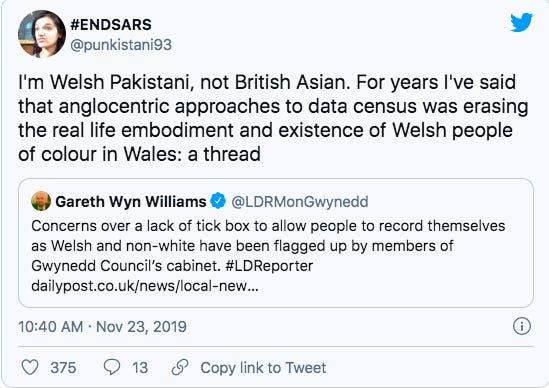The Covid19 pandemic has laid bare the deep divides in film exhibition and audience development throughout the United Kingdom. Devolved healthcare in places like Scotland and Wales has led to differing government legislation compared to England, and this has acutely affected the film sector. If devolution and the landscape of the UK made film exhibition and audience development difficult, along with the regular questions of race, class, sex, and gender: Covid19 has made it substantially worse.
Devolved legislation has seen the film exhibition sector thoroughly grapple, for the first time, with the devolved nature of the different nations of the United Kingdom. No longer were English-language funders in England pulling the strings and calling the shots on statistics, engagement, and key performance indicators through go-to (overwhelmingly white) community gatekeeping organisations designed to support the sector (and, for example, engage the Welsh Black, Asian and Minority Ethnic people). It was physically impossible: the cinemas were closed in Wales and Scotland when the ones in England were open, and then it became almost like hokey-cokey. Jumping in, jumping out, jumping in and out of film exhibition and, most importantly, audience engagement. This has been a nightmare for funders in London who administer and coordinate film exhibition and funding across the UK on public money.
Decolonisation is not a metaphor
Equality, diversity, and inclusion has become a dirty word, as an amalgamation of the institution. It is the long hand of the institution self-regulating itself around increasingly meaningless language. The institution needs EDI to survive, to future proof, to protect the institution that necessitated the creation of EDI as a strategy. It is very difficult for sustainable engagement and it is almost impossible for long-term change to come from these initiatives. It’s not uncommon to hear of “decolonisation” in the film sector or the arts sector, but it isn’t a swappable term for other things we want to do to improve the sector.
Decolonisation is not a synonym for inclusivity. Interestingly, Tucker and Yang remind us in their seminal piece that “Decolonisation is not a metaphor” that decolonisation doesn’t have a synonym. It does not exist.
Diversity, too, is a metaphor. Cardiff is home to the oldest continuous Black community in the United Kingdom. In 1911, it had the second largest population of Black, Asian and Minority Ethnic people in the United Kingdom outside of London. To date, 20% of people in Cardiff are BAME, and London is 41% BAME: but Cardiff isn’t half the population of London. If you go to larger arts institutions across Wales (and especially in Cardiff), you will see a systemic lack of representation and erasure in the workforce of people from BAME backgrounds. In fact, these backgrounds would be called “diverse”. This locates the subject of the Welsh person as white. This is reflected in the almost homogeneously white leadership of Welsh institutions. The Welsh language, as a result, becomes scapegoated as why diversity has gone badly, with a lack of interrogation on race and language as an embodied experience. Race and language are always played off against each other: Welsh isn’t a protected characteristic, but something to which “due regard” must be given, hence this self-perpetuating dichotomy that disproportionately erases Black Welsh language speakers.
Here in Wales, diversity is used frequently as a synonym for race. When Black people have been here for hundreds of years, it is worth interrogating who, inherently, is deemed as diverse and who is deemed as Welsh. By default, intersectionality is seen as a parallel to the Equality Act, and diversity as intersectionality sees intersectionality watered down into a management tool as a “racial alibi”.
Diversity, Dissection and Diversity Washing
In 2019, a campaign was launched by Gwynedd Council, myself and others to raise awareness of the availability of only being able to self-identify as Welsh if you self-identified as white. I wrote a Twitter thread about it here. Data collection reflects the Office for National Statistics, and soon enough will be available on BFI forms for audiences. What took so long?
These benchmarks of statistics from the government are the benchmark by which engagement is set for quarterly reporting for recipients of funding to write to their funders. These benchmarks have to exist, because of the Public Sector Equality Duty. Engagement is crucial for the long-term development strategy of organisations, and especially cinemas and arts institutions. Its best friend is called diversity washing.
Superfluous is one way of looking at the census debate. Superfluous in the perpetuation of racialised categories of discourse, its legacy from slavery and racial classification, in the offensive nature of data collection, superfluous in its coalescence with devolution, race, England, Wales and the arts. Will the benchmarks for BAME engagement be set by the British average, or will the implementation of new categories of race mean Anglesey’s POC jump to an average dragged up by Cardiff? Diversity is a tick-box exercise, and it dissects our communities for the white gaze.
There is a categorical lack of BAME people in the creative sector and in film exhibition across Wales and across the United Kingdom. It leads to epistemic diversity washing in the arts sector. Organisations in Wales are desperate to prove how many BAME people they hire, how many BAME people they fund, leading to cultures of nepotism and favouritism (ironically enough, to allegedly disprove cultures of nepotism and favouritism amongst the non-BAME community). Jafar Iqbal’s tour de force on the Wales Race Culture Task Force explores how over numerous white-led organisations donated £20,000 of public money unaccounted for directly to a group called the Wales Race Task Force, that was later dismantled because of allegations of bullying from the organisation holding the money. To quote Jafar, he says it “started with a bang, ended with a whimper and leaves £20k unaccounted for”.
When the gaps between our communities and institutions are deeply, deeply exploited by organisations like the Wales Task Force, there is a differentiation in the landscape owing to language, leadership and legacy around race, class, gender, devolution and art. They have always been there, and the ping-pong between London-based funders disseminates funding to Wales-based organisations in Cardiff, so that e.g. Black Welsh language speakers are “engaged” in Gwynedd.
What does this mean? The pandemic has turned back good work done in the sector across Wales around race and for cinemas to reflect the communities they serve. We are going backwards, and not forwards.
This will also be the pattern in England, and Scotland. Next year’s findings from the ONS will irrevocably change those boxes that we need to tick: but how on earth do we burn down the box and the gap between our communities and the institutions that are supposed to represent us?
Reading and Watching List
I’m British But (Film)
New Ethnicities- Stuart Hall (Essay)
Decolonisation is Not a Metaphor- Tucker and Yang (Journal article)
Census 2021: Ethnic Minority Welsh not automatic choice (Online article)
After Many A Changing summer (Film)
Reel to Reel, bell hooks (book)
Special thanks to Moira McVean, Hana Lewis, and FAN Young Consultants for their feedback and support with this piece.






